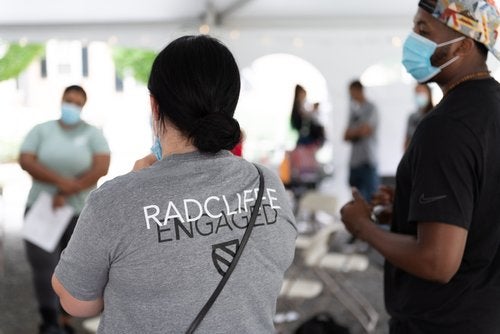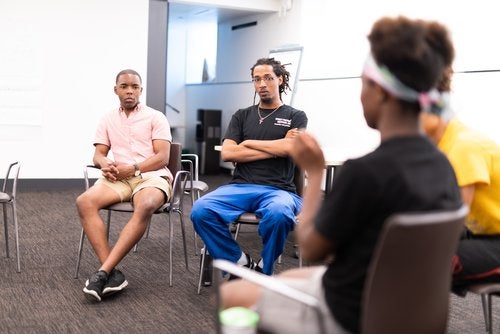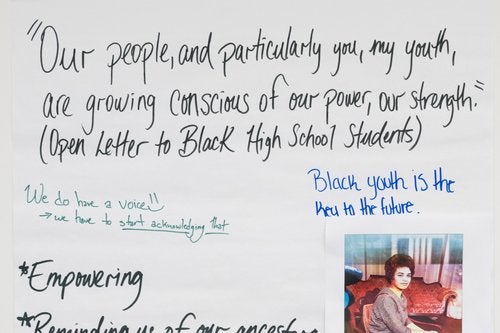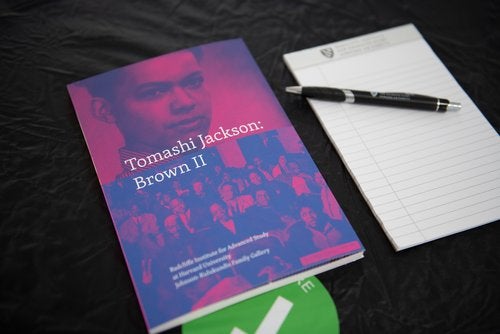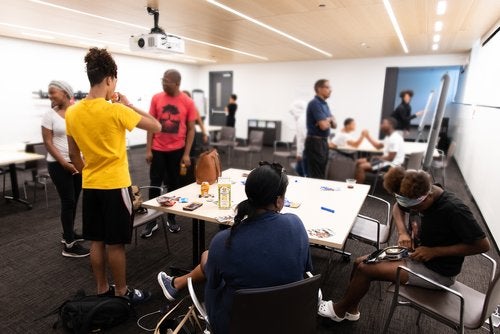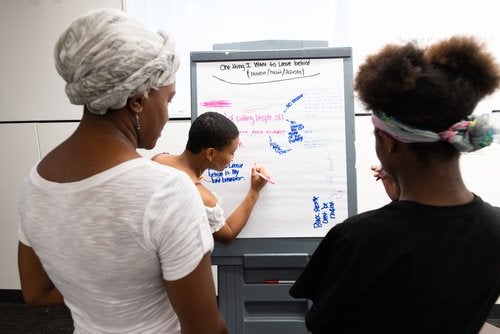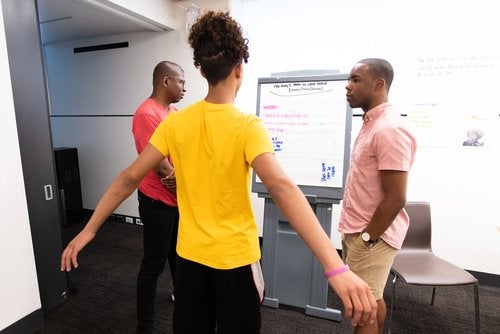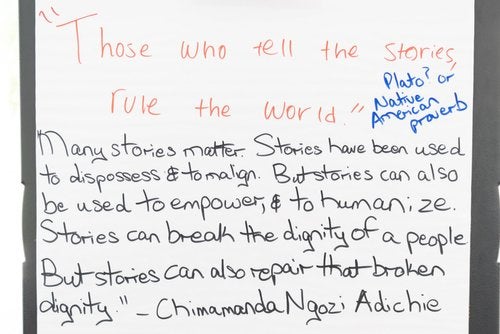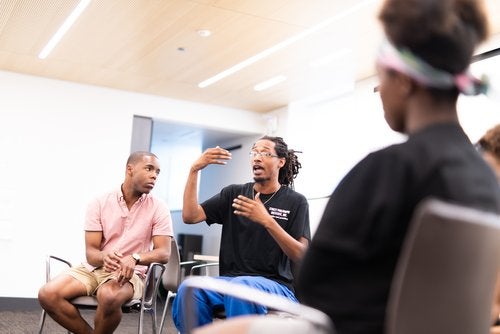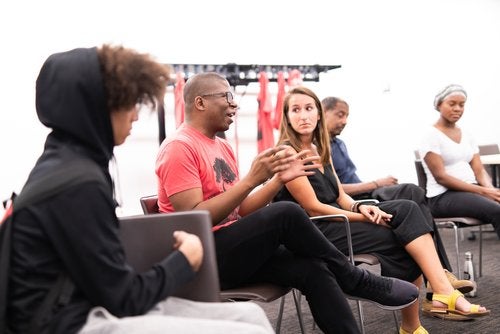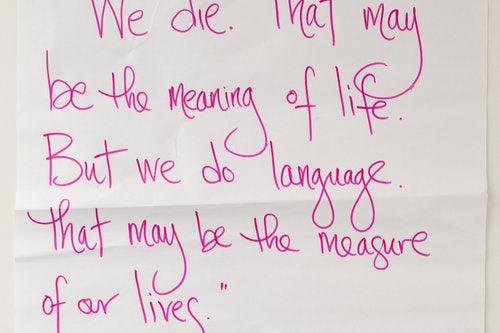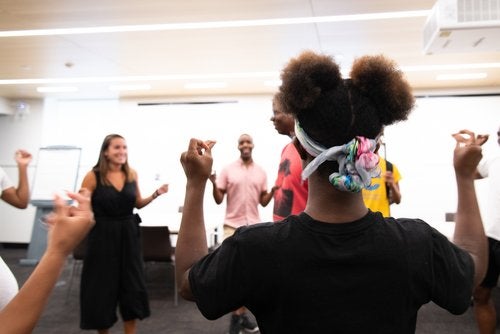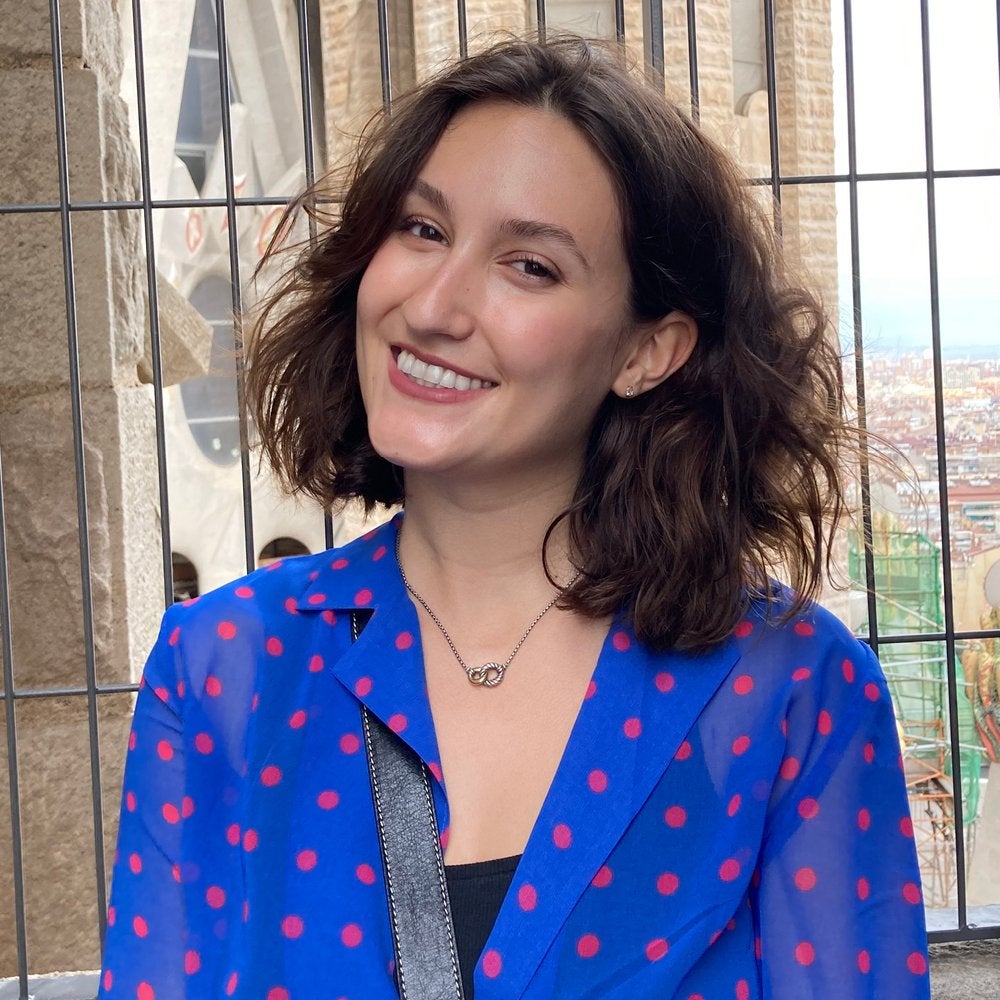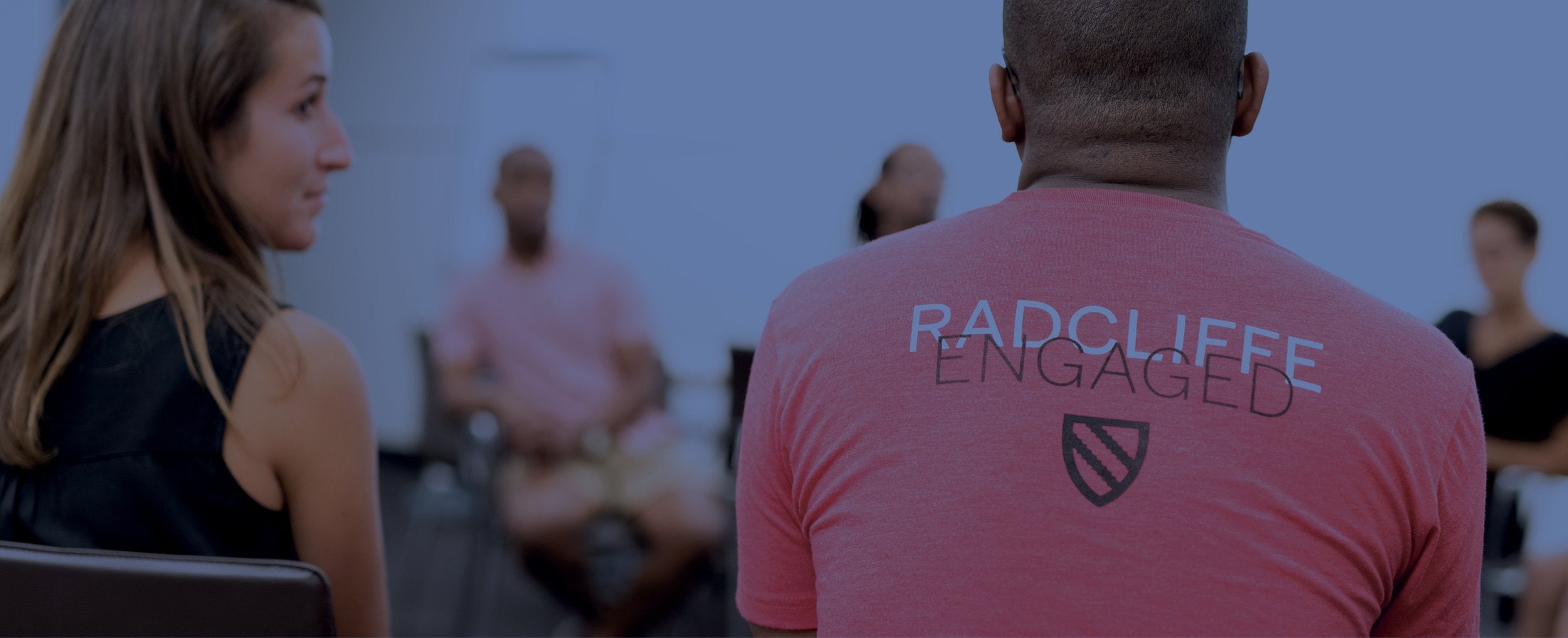In 2019, Harvard Radcliffe Institute (HRI) Dean Tomiko Brown-Nagin announced Radcliffe Engaged, a five-year strategic plan that builds on the Institute’s legacy of promoting inclusion and opportunity—particularly for those who have been historically underrepresented—and leverages its power as a center for interdisciplinary research and exploration. Since then, Radcliffe Engaged has enhanced core programs, expanded dynamic learning opportunities for students, and forged and fortified diverse collaborations and community partnerships that have real-world impact.
The Kim and Judy Davis Catalyst Fund—established with a gift from longtime supporters Kim AB ’76, MBA ’78 and Judy Davis—is bolstering the work of Radcliffe Engaged. Designated for use at the dean’s discretion to advance Radcliffe Engaged objectives, this current-use fund provides HRI with flexible resources to drive the implementation of its strategic plan and helps the dean advance immediate priorities, including several thematic focus areas that address some of society’s most critical issues.
“It’s easy to support an institution that has a great mission; it’s even easier when that institution is in the care of a great leader. The Harvard Radcliffe Institute under Tomiko’s leadership is such a place. Judy and I are honored to help realize the ambitions of Radcliffe Engaged and are excited to play a role in expanding the impact of the Institute’s work,” says Kim, who is the co-chair of the HRI Dean’s Advisory Council and, along with his wife, Judy, a dedicated supporter of the Faculty of Arts and Sciences and Harvard Business School.
One initiative of Radcliffe Engaged is the Emerging Leaders Program (ELP), a youth mentorship program focused on gender and leadership that brings together Harvard undergraduates and local high school students. Drawing on the Institute’s history—and the vast holdings of the Schlesinger Library on the History of Women in America—the ELP curriculum focuses on influential female-identifying leaders, social movements (both past and present), and the practical skills necessary for community and civic engagement, encouraging youth to view themselves as future leaders in their communities.
The Institute has also launched a multiyear focus area on law, education, and justice, which examines the crisis of mass incarceration in America—through research and programming on its historic causes and current consequences—and seeks solutions to address the racial, gendered, and economic inequities at its root. As part of the focus area, HRI provides opportunities for students across Harvard to explore this complex issue in extracurricular working groups and through research grants, and it supports educational programs in carceral spaces through partnerships with Boston-area organizations.
The Catalyst Fund will help deepen and expand the impact of both these initiatives, as well as provide seed funding for a new HRI focus area on climate change launching in academic year 2022–23. This includes supporting new and enhanced offerings for Harvard students to engage in experiential, interdisciplinary learning through service and internship opportunities. It also serves as a model for how philanthropy can provide leadership with a flexible runway to strategically allocate resources to strengthen existing programs, ramp up new initiatives, and realize institutional ambitions.
“Kim and Judy are leaders in the Radcliffe community, and I am deeply grateful for their vote of confidence in the Institute’s strategic direction,” says Brown-Nagin, who is also Daniel P.S. Paul Professor of Constitutional Law at Harvard Law School and professor of history in the Faculty of Arts and Sciences. “Their generosity is enabling us to act ambitiously in tackling some of the most complex and timely issues in our society."

